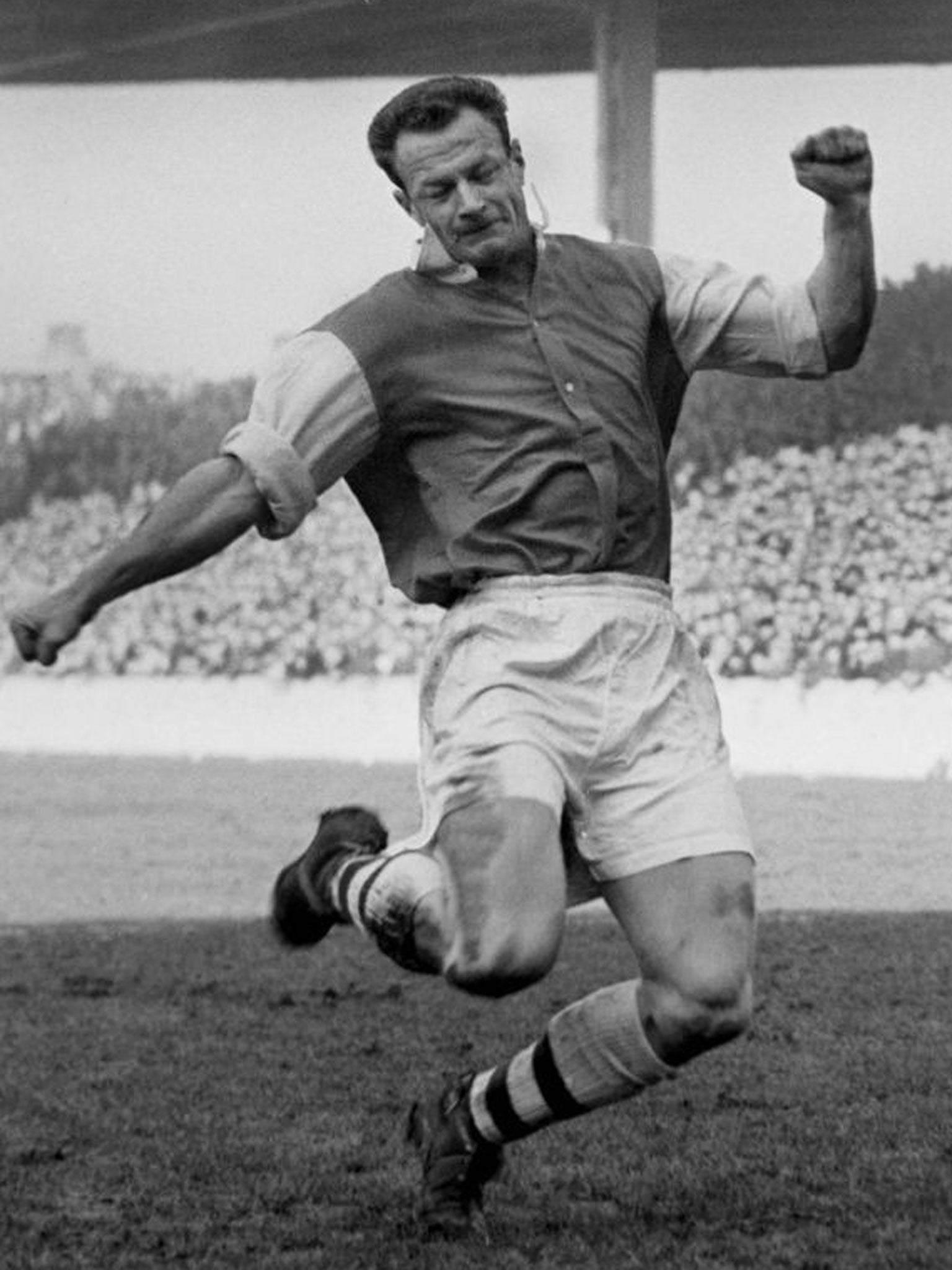Stan Charlton: Rugged full-back for 1950s Arsenal
Born into a footballing family, but not the same one as his famous namesakes

Stan Charlton was essentially an amiable fellow, splendid company in all circumstances except one. That was if you happened to be a winger detailed to confront the muscular Devonian as he plied his honest trade as a full-back for Leyton Orient, whom he captained as they reached the top flight for the only time in their history, and Arsenal in the 1950s and '60s. He never laid claim to being the most stylish defender in the Football League but he was ferociously committed to his work, and his juggernaut tackles – many of the long-distance, sliding variety and nearly all, it should be emphasised, strictly within the laws of the game – became the stuff of folklore at both Brisbane Road and Highbury.
Charlton was born into a footballing family, but not the same one as his famous namesakes, the north-easterners Bobby and Jack. His father, also Stanley, played for five League clubs between the wars, notably Exeter City and Crystal Palace, but Charlton himself made his first mark with Bromley of the Isthmian League.
His form with the Kent club was impressive enough to earn four England amateur caps, and he made the Great Britain squad for the 1952 Helsinki Olympics, though without playing a game. Thereafter he joined Leyton Orient of the Third Division (South) and in his first campaign he was an ever-present, including a few games in attack, but clearly he was most effectively employed at the back, where his fighting spirit – as befitted a man who had served abroad in the Royal Artillery – was much in evidence.
After excelling in the first three months of 1955-56, which Alec Stock's entertaining side was to climax by lifting their divisional title, Charlton moved to Arsenal in the November, accounting for the minor portion of a £30,000 transaction which also took centre-forward Vic Groves to Highbury. Soon Charlton ousted the more elegant but considerably less rugged Len Wills as right-back, performing combatively as the Gunners recorded consecutive fifth-place finishes in the championship race.
Occasionally, too, he showed his attacking capabilities with a long-range strike at goal, notably a 30-yard howitzer at home to Birmingham City in the FA Cup sixth round, a 3-1 defeat, in March 1956. There were creditable displays, also, for the London XI which contested the Inter-Cities Fairs Cup in the inaugural running of the competition, which lasted from 1955 to '58. However, Arsenal failed to progress under Jack Crayston, who had taken over as manager when Tom Whittaker died in October 1956, and after Wills reclaimed his berth Charlton returned to Orient in December 1958.
At the time the Brisbane Road side was struggling in the second tier, but Charlton helped immeasurably to tighten the rearguard. New manager Johnny Carey, who had been only recently sacked by Everton, brought inspiration and in 1961-62 Orient were promoted as runners-up to Bill Shankly's Liverpool. A half-back line comprising Malcolm Lucas, Sid Bishop and Cyril Lea was superb, Dave Dunmore proved a potent spearhead and after captain Charlton was chaired off by fans at the end of the promotion-clinching home victory over Bury, he described it as the most emotional moment of his career.
Sadly there was no cash to add to the squad for the First Division challenge and 1962-63 proved a traumatic term for the Os, who finished bottom of the table, a dozen points from safety. Charlton, whose only representative honours were earned on an FA tour to Nigeria and Ghana in the summer of 1958, continued as a defensive bulwark in a declining team until 1964-65, after which he departed – having made more than 400 appearances over his two spells at Brisbane Road – to become secretary-manager of Weymouth, whom he guided to the Southern League championship in his first season.
After his stint at the Recreation Ground, which ended in 1972, he worked as district manager for a major football pools company and retained a close involvement in the game by coaching Dorset's county side.
Stanley Charlton, footballer: born Exeter, 28 June 1929; played for Leyton Orient 1952-55 and 1958-65, Arsenal 1955-58; died Dorchester, Dorset 20 December 2012.
Join our commenting forum
Join thought-provoking conversations, follow other Independent readers and see their replies
Comments
Bookmark popover
Removed from bookmarks